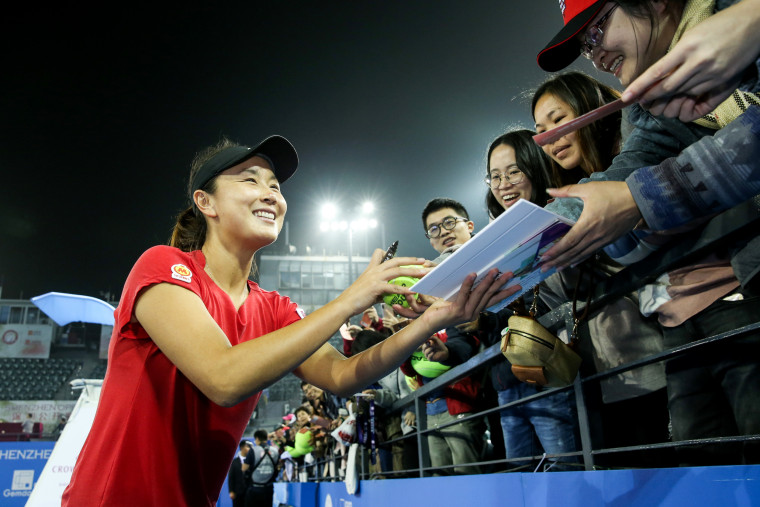The Biden administration is expected to announce a diplomatic boycott this week of the 2022 Beijing Winter Olympics, a senior administration official said late Sunday.
A diplomatic boycott would mean that no U.S. government officials would attend the games but that U.S. athletes would still be allowed to compete.
A full boycott was not expected.
CNN first reported the news of the expected announcement.
China's Ministry of Foreign Affairs hit back at the expected move Monday morning.
“The Winter Olympics is not a stage for political show and political manipulation,” spokesman Zhao Lijian told a daily news briefing. He said a boycott would be “a serious stain on the spirit of the Olympic Charter,” the document that spells out the spirit of the games, as well as “a naked political provocation, and a serious offense to the 1.4 billion Chinese people.”
Zhao warned that China would take “resolute countermeasures” to any boycott, which he said would impact “China-U.S. dialogue and cooperation in important fields.”

The Biden administration has been under pressure from lawmakers to institute the diplomatic boycott. They have wanted to take a stand against China’s human rights abuses.
President Joe Biden said last month that the administration was considering the move.
China has been criticized for cracking down on pro-democracy protests in Hong Kong, for its policies toward Tibet and Taiwan, and for detaining and abusing Muslim Uyghurs in Xinjiang.
The State Department, along with some European countries, has classified China's actions against Uyghurs as "genocide."
“We have serious concerns about the human rights abuses that we’ve seen,” White House press secretary Jen Psaki said last month.
Calls for either a diplomatic or full boycott of the games have grown since the Chinese tennis star Peng Shuai disappeared from public view for three weeks after making sexual assault allegations against a former senior official of the Chinese Communist Party.
Peng has since reappeared but questions remain about whether she is acting on her own free will.
A diplomatic boycott is seen by some as the best way to hold China to account without punishing athletes who have been training for the games for years. Others say Beijing wouldn’t care too much about a few absent politicians and diplomats.
“Why should China care about their noises?” an editorial in the state-run Global Times newspaper said last month, referring to Western objections to the games. “China would lose if it cares about this strategy.”
If the U.S. does impose such a boycott, it would likely not be the only country to do so. Canada, the United Kingdom and Australia are among those who have said they are considering similar action.
Download the NBC News app for breaking news and politics
A mass Olympic boycott would be the first since the Cold War.
In 1980, the administration of then-President Jimmy Carter led more than 60 nations in boycotting the Moscow Olympics over the Soviet Union’s invasion of Afghanistan a year earlier. In retaliation, 15 countries followed a Soviet-led boycott of the games in Los Angeles four years later.
Thomas Bach, the president of the International Olympic Committee, says he is against boycotts of his organization’s marquee event.
“A sports boycott serves nothing,” he said last year, noting that the Soviet Union stayed in Afghanistan for nine years after the 1980 boycott over its invasion. “It’s only hurting the athletes and it’s hurting the population of the country because they are losing the joy to share.”
The IOC has been accused of being too soft on China, both in the Peng case and in allowing Beijing to host the games at all.
The growing pressure on China comes as the Uyghur Tribunal, a nongovernmental body set up by lawyers in the U.K., gets set to issue a judgment Thursday on whether China’s actions against its Uyghur Muslim minority constitute genocide, something the U.S. already says is the case.
China says camps where human rights groups report some 1 million people have been held are for “vocational education and training,” and are necessary to fight domestic terrorism.

